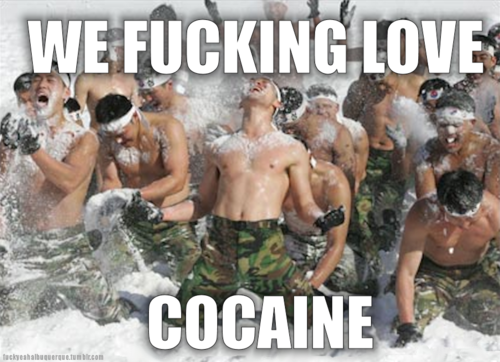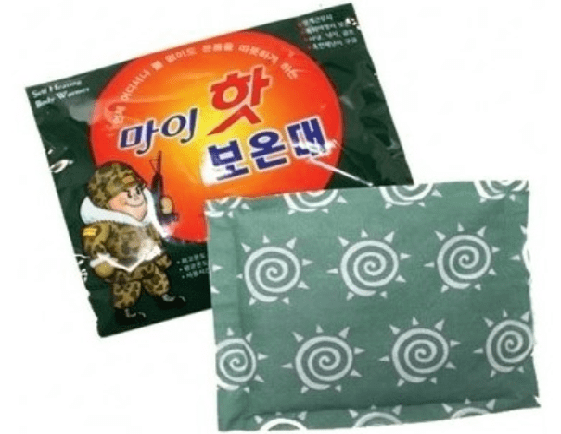Story time.
When I was in the ROK Army, like many others before me and since, I went through winter survival training exercise. We call it 혹한기 훈련 in Korean. It takes place up in the mountains over 5 days.
As the name suggests, it& #39;s about surviving winter temperatures. https://twitter.com/girlsreallyrule/status/1246067852370751488">https://twitter.com/girlsreal...
When I was in the ROK Army, like many others before me and since, I went through winter survival training exercise. We call it 혹한기 훈련 in Korean. It takes place up in the mountains over 5 days.
As the name suggests, it& #39;s about surviving winter temperatures. https://twitter.com/girlsreallyrule/status/1246067852370751488">https://twitter.com/girlsreal...
I went through that training exercise twice. I was based in the 2nd ROK Army Infantry Division, which is located in Yanggu, Gangwon province. Winters in Seoul are mild, but it& #39;s a little different in Gangwon.
The first time I was part of that training, the temperature hovered between -5°C to -8°C (23°F to 17°F). It wasn& #39;t the coldest temperature I had ever experienced. I spent my college years in Wisconsin where it once got down to -13°C (8°F). It was colder with wind chill.
Although it got much colder in Wisconsin, the difference is that no one ever forced me to stay outside for days when I was in Wisconsin. I was able to take shelter inside where there was central heating.
Not so in the ROK Army where I was voluntold to do a lot of things.
Not so in the ROK Army where I was voluntold to do a lot of things.
The training itself wasn& #39;t really different from the usual kind. I wasn& #39;t in the special forces, so I didn& #39;t have to do anything too crazy. Those boys are not right in the head. I was in the signal corps. We did our regular marching, PT, tactical training, MOS training, etc.
Nothing out of the ordinary. The only difference was that it was cold. But because we were always active and doing stuff, and because at least the sun was up, it was bearable during the day. Not so much at night. As usual, it was lights out by 10pm.
We were wearing layers upon layers of clothes. We used hot packs to warm our hands and feet in our sleeping bags. I am convinced that those things saved my life. If we weren& #39;t sleeping, we were on guard duty. Or on night watch duty. No matter what you did, it was cold.
But not everything was cold. No, we couldn& #39;t start a fire. That would have given away our position. But there were tents that were heated - headquarters (where the brass were; they even got to sleep on cots), the field hospital, and the commander& #39;s tent.
It stunk of gasoline in those tents, but it was warm in there.
I wrote this whole set up because I wanted to talk about my CO. The entire division was taking part in the training exercise, but the division commander, a major general, couldn& #39;t do everything by himself.
I wrote this whole set up because I wanted to talk about my CO. The entire division was taking part in the training exercise, but the division commander, a major general, couldn& #39;t do everything by himself.
He was served by battalion commanders who in turn were served by company commanders who were served by platoon commanders who were served by squad leaders.
My company commander, a captain, was new. Our previous commander had completed his 2 years and was sent elsewhere.
My company commander, a captain, was new. Our previous commander had completed his 2 years and was sent elsewhere.
Our new CO had been with us for less than two months before the training exercise started. Even the other officers weren& #39;t yet friendly with the new CO. It takes time to get to know a new person, and we just didn& #39;t have that time.
The new CO was also a woman.
The new CO was also a woman.
I don& #39;t know what it& #39;s like elsewhere in the ROK Army, but it wasn& #39;t that uncommon to see female officers and NCOs in the signal corps. We had a fair number of staff sergeants who were women. Even a sergeant first class and a first lieutenant. But definitely not a captain.
I& #39;ve always considered myself a feminist, but I& #39;m not going to lie. It was weird seeing a woman in the middle of all those men. Especially one that everyone in the company had to salute to. And things got sexist pretty quickly. I& #39;ll spare you the unpleasant details.
As our company& #39;s commanding officer, she had the luxury of staying in her own heated tent. And being a woman, she was given the additional luxury of staying in her own tent away from the other male officers. She even had her own porta potty.
But she didn& #39;t do any of that.
But she didn& #39;t do any of that.
She trained with us, marched with us, ate with us, and she slept on the cold, hard ground with us. She was freezing like the rest of us, but she never once showed it. She was certainly more badass than one warrant officer who literally went home during the training exercise.
No one talked behind her back after that. She was the captain and whatever the captain ordered was how things got done.
The following year, she joined us again.
She was as hard as nails, but she made sure that she put her soldiers& #39; welfare before everything else.
The following year, she joined us again.
She was as hard as nails, but she made sure that she put her soldiers& #39; welfare before everything else.
I joined the Army late. Most Korean men who complete their Army service get it done from when they are 18 to 22. I joined when I was 28. The captain was older than me by only 2 years.
Not only did she know that I was older than the other conscripts, she also knew my background - that I lived overseas my entire life and that I was more fluent in English than I am in Korean.
She didn& #39;t treat me differently, but she did offer me some kind words now and then.
She didn& #39;t treat me differently, but she did offer me some kind words now and then.
She told me that she knew what it was like to live in a country where you didn& #39;t speak the language fluently. It turned out that she had spent a couple of semesters in Paris as an exhange student, and she could speak a bit of French.
The word for captain in Korean is daewi. But only people who outranked her could address her that way. The Korean word for company is jungdae. Company commander is jungdaejang. And we& #39;re Koreans, so we have to use honorifics. So we called her jungdaejang-nim.
On my very last day right before I got discharged from active duty, I called her nuna, which is the Korean word men use to address an older sister or an older female friend/acquaintance. She let it go because it was my last day.
There are lots of people in the Army. And there are just as many different types of people as there are people. And there were lots of people that I couldn& #39;t stand. That warrant officer I mentioned earlier who went home in the middle of a training exercise was one of them.
All that warrant officer ever did was talk about how he could recognize a jet fighter just by looking at its silhoutte and how he was the best soccer player until his left knee gave out. I had never seen him do any real work. Not even once.
But the captain? I had no problems with her because she never ordered us to do anything that she herself could not do.
People recognize good and bad leaders in an instant. Even if they don& #39;t always make the right call all the time, people instinctively know who to follow.
People recognize good and bad leaders in an instant. Even if they don& #39;t always make the right call all the time, people instinctively know who to follow.

 Read on Twitter
Read on Twitter



